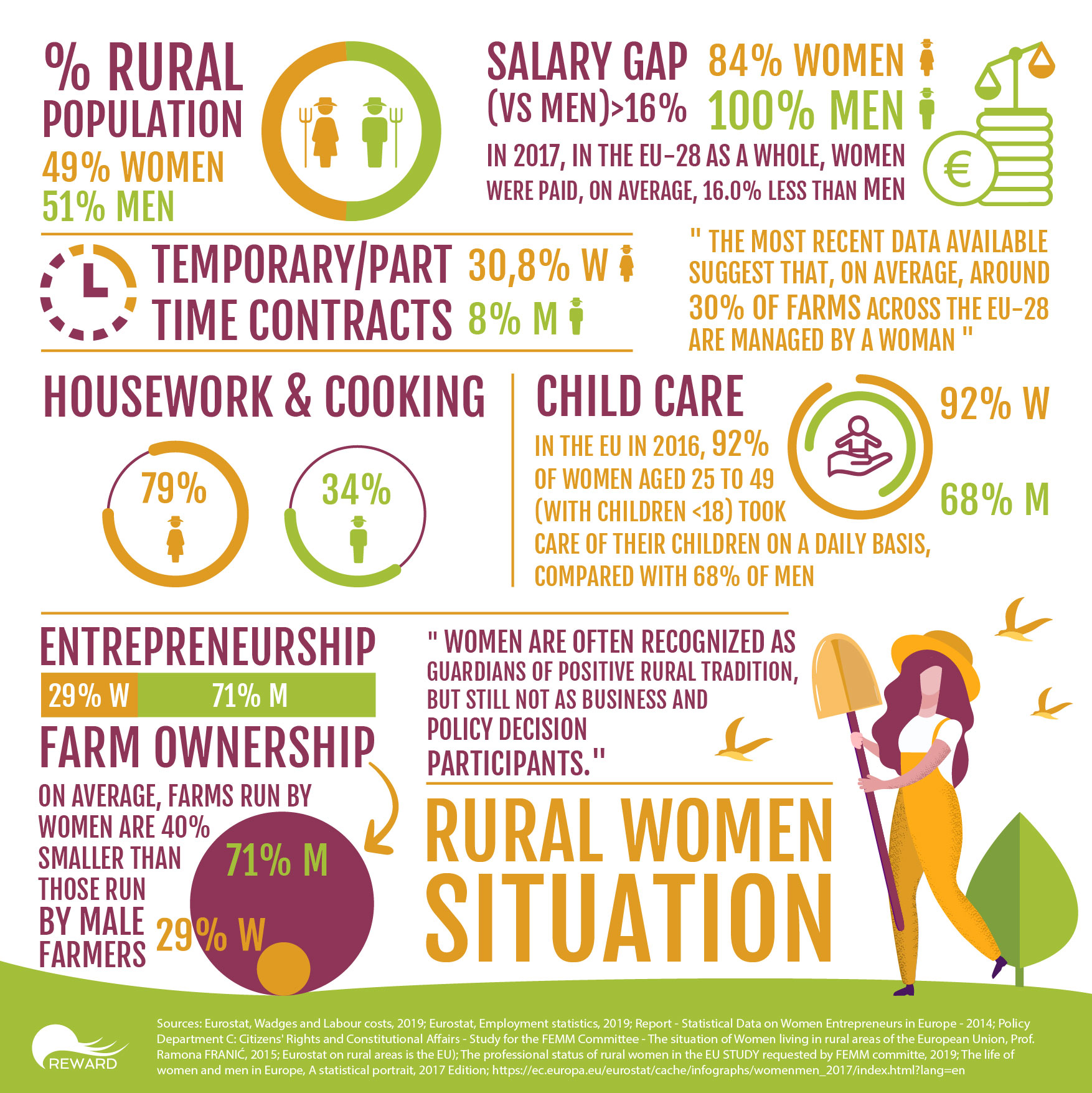Women play a fundamental role in the sustainable development of rural areas. They account for 49% of the rural population, and are a vital contributor rural society.
The structural changes in the agricultural way of life that have taken place since the end of the 20th Century - Deagrarianisation, pluriactivity, “agrarian de-familiarization” etc., - have caused the exodus of rural women towards urban areas where they find greater and better job opportunities.
Despite this scenario, there are opportunities for the empowerment of women in rural areas, opportunities that will improve their economic and social position. However, in many cases, profound changes are required to the traditional role of men and women.
- Today, women account for the production of half of the world’s food, do two thirds of the world’s work, yet receive merely 10% of the world’s income. Whilst inequality between men and women is perpetuated through lack of employment opportunities, lower pay and lack of participation in decision making, the gap is wider in rural areas.
According to research, young and middle-aged rural women are well-educated. This significantly translates into taking up new challenges that are a manifestation of positively perceived entrepreneurship. Advantages of women living in the countryside on the labour market include education, qualifications, professional experience, ability to work in a team, creativity, resistance to stress, as well as good organization of work, sense of responsibility, discipline and concentration on performing tasks.
Improving women’s employment opportunities, promoting co-responsibility and equal sharing of household and care tasks between rural men and women, are all essential factors for sustainable rural development.
- Multifunctional farming means the initiation of new non-agricultural on-farm activities and may include the production and processing of high quality food (e.g. organic farming, based on traditional, regional or local recipes, etc.), the direct sale of food and agricultural products, agricultural production for energy purposes, non-agricultural business activities (e.g. agrotourism, agricultural services, commerce, handicrafts, etc.), rural landscape management, care services, social activities, preschool education, etc.
The more multifunctional our agriculture becomes, the greater the role of women. The attractiveness of this multifunctionality is mainly due to the fact that it allows the obtaining of complementary incomes to those obtained by the agricultural production, as a consequence of the diversification of their activities.- The new sources of employment derived from the multifunctionality of rural areas correspond, in most cases, to activities that have traditionally been carried out unpaid by rural women. It is now an opportunity for women to professionalise and participate in the labour market.
- Europe has significant heritage resources - the majority of which are distributed in rural areas - which offer great possibilities in terms of territorial development and sustainability. The traces left by the manifestations of local cultures in the national territories becomes visible in a large heritage complex, which includes the cultural, natural and the landscape itself.
Women have traditionally played an essential role as transmitters of traditional culture. The transmission of wisdom, techniques and knowledge related to everyday life or to the rituals, play a fundamental role in the cohesion of family and social life.
This role has been fundamental in the intergenerational passing down of knowledge, in the education and socialisation of children, in the communication of meanings and skills related to language, beliefs, oral tradition, songs, dances, stories, games, legends.
The search for new functions for a heritage are mostly confined to rural areas, that include revitalising structures of the past and giving them meaning in the present, beyond the purely identitarian, seems to be the optimal line of action.
Linking multifunctional activities to the immense cultural heritage that we have, does not seem only a good opportunity, but it is also an obligation, to revitalize rural areas, value the cultural assets of our society and offer groups such as rural women a employment opportunity linked to the family farm.









 Français
Français Čeština
Čeština Polski
Polski Slovenščina
Slovenščina Español
Español

